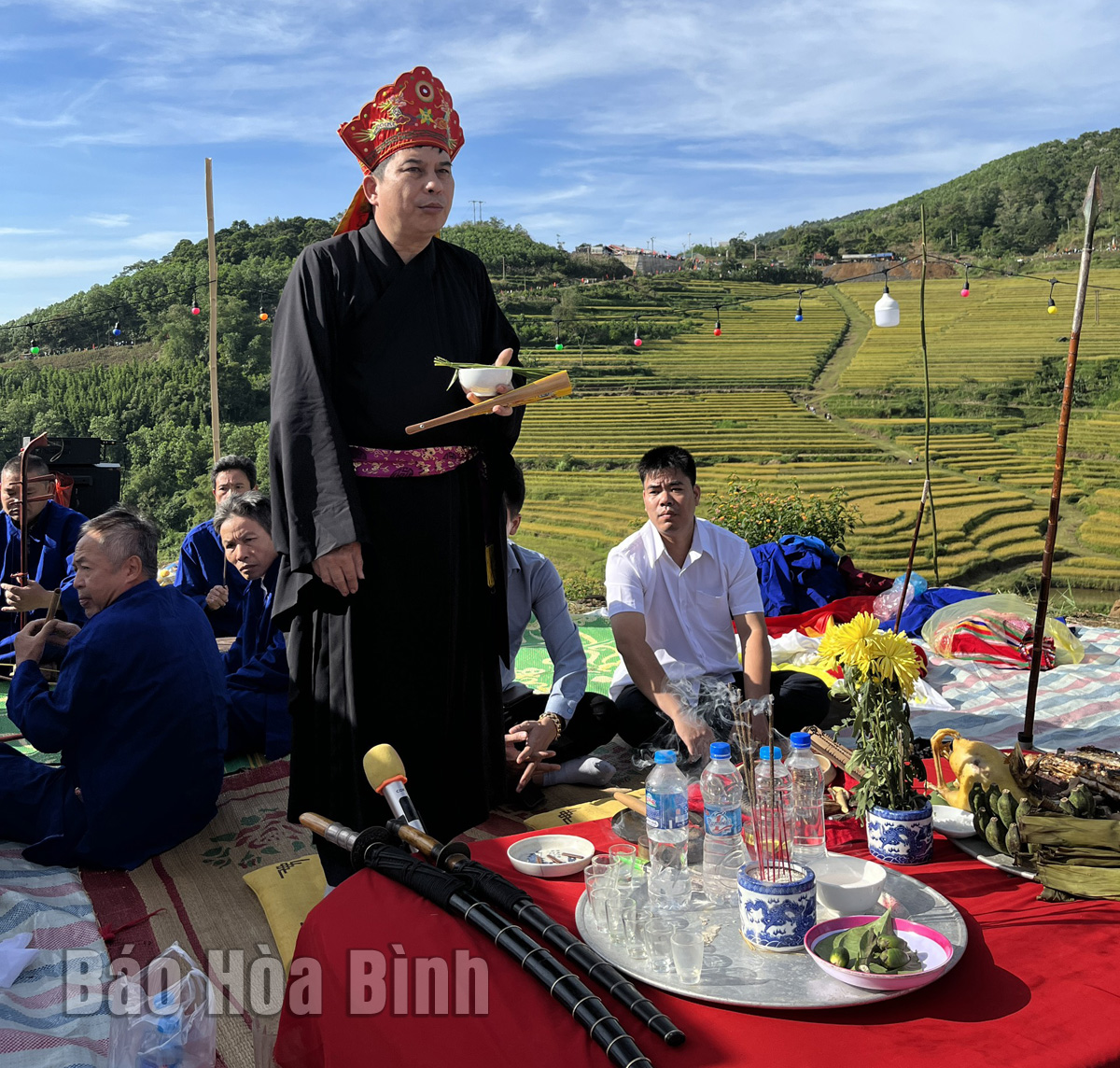People of the Muong ethnic group have been residing in Hoa Binh province throughout history. Hoa Binh province is a land of indigenous Muong ethnic people. Over the time, the Muong ethnic group has created and preserved a rich and diverse folk culture, in which there is a prominent and unique genre with profound humanistic values - the Mo Muong. Mo Muong has helped to form and nurture the character and soul of the Muong people as well as the land of Hoa Binh.
Throughout history, generations of Muong people
have preserved, passed down, and promoted the values of Mo Muong, creating the
vitality and widespread influence of this extremely valuable intangible
heritage. Many cultural, literary, and anthropological studies by domestic and
international scholars have clarified the values of Mo Muong, further
demonstrating the vitality of the heritage.
Core
contents, values of Mo Muong
Mo Muong includes Mo rituals, Mo lyrics, and Mo
performances. Mo shamans are those who perform Mo Muong rituals in which they
say prayers and chant Mo lyrics. In the Muong regions today, there are five Mo
melodies named "O hoi", "Da de", "Ham mo",
"Da doong", and "Heu keu". The melodies derive their names
from the first words of the respective melodies that distinguish them from one
another.
As a verb, "mo” means chanting in certain
melodies the prayers, "mo nhom” songs, the "mo cat” narrations in the rituals
serving the life of each family and community.
As a noun, it refers to those who practice the
profession of "mo” and to the "mo” songs. The people who practice "mo” are
called "Ong Mo” (Mo shaman). However, there is a distinction between new
practitioners of "mo” and those for generations, with the latter group
receiving more respect from the public.
The
process of Mo formation and existence
There haven’t been any studies specifying when
Mo Muong came into being. However, researchers found that Vietnamese epics
appeared in the pre-state period – about 2,800 years ago. Particularly, the
epic "De dat, de nuoc" (the birth of earth and water) of Muong people
is believed to appear in the common historical period of Viet - Muong people.
Mo is a religious ritual held in the funeral of
Muong people. It is both a product of the creative application of traditional
Muong cultural values, and a social phenomenon reflecting the material and
spiritual life of Muong people throughout their millennia-long history.
Mo consists of two basic components – rituals
and words, which vary according to ceremonies.
Regarding rituals, each Mo ceremony has a
different number of rituals depending on the situation of each funeral such as
what rituals must be performed during that funeral, material conditions of the
family, and social management regulations. The scale of a Mo ceremony is based
on such requirements.
Based on statistics of researchers, Mo Muong
includes 12 basic rituals which demonstrate the deeply humane behaviour of the
Muong people in Hoa Binh towards the body and soul of the deceased. Only
families that can fully perform the above rituals in the funeral are considered
to have basically fulfilled the duties of the living towards the dead. However,
in reality, very few funerals of Muong people in the past as well as at present
can fully perform those rituals.
Mo Muong shows the content of folk knowledge,
including that of the nature, human beings themselves, production, artistic
creation, and social management and behaviour. Mo shamans are the masters of
this heritage who preserve and convey the content of traditional culture
through belief-related activities and ritual practices.


